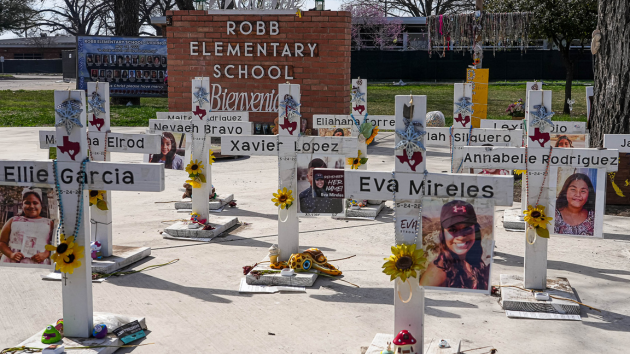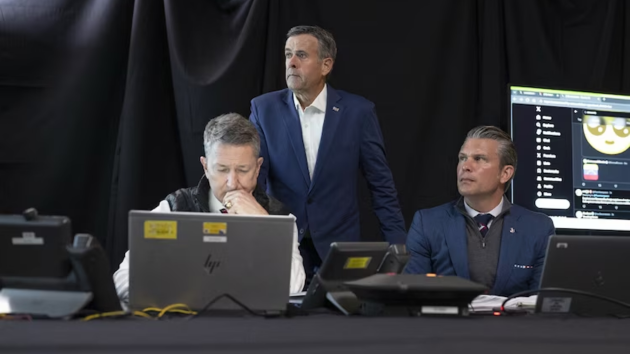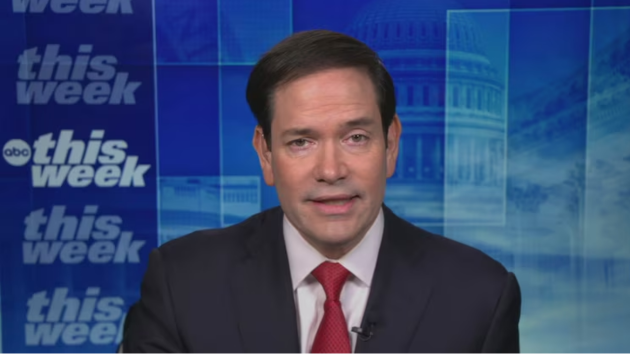Prosecutors in Trump’s hush money trial rest their case after 20 witnesses, over 200 exhibits
Written by ABC Audio ALL RIGHTS RESERVED on May 20, 2024

(NEW YORK) — After calling 20 witnesses and showing jurors over 200 pieces of evidence, prosecutors in Donald Trump’s criminal hush money trial have rested their case against the former president.
Across four weeks of testimony, prosecutors have laid out their case against Trump by telling a story of sex, schemes and lies related to the 2016 election.
The Manhattan district attorney’s case against the former president begins in 2006, when adult film actress Stormy Daniels alleges she had sex with Trump at a golf tournament in California, which Trump denies.
Ten years later, after the real estate mogul and reality-television star became the Republican presidential nominee, Trump’s former lawyer Michael Cohen said he purchased the rights to kill Daniel’s story — at the direction of Trump himself — to avert a political catastrophe just days from the 2016 election.
Prosecutors allege that Trump falsified business records in 2017 when he repaid Cohen for the $130,000 payment to Daniels, labeling the payment as a legal expense pursuant to a retainer agreement. Trump had pleaded not guilty and denied any wrongdoing.
“I was paying a lawyer and I marked it down as a legal expense,” Trump told reporters during the first week of the trial. “Legal expense — that’s what you’re supposed to call it.”
Trump’s attorneys were expected to present a brief defense case before the jury hears closing statements and begins deliberating.
Paying for silence
To start building their case, prosecutors began with former National Enquirer publisher David Pecker, whom they allege engaged in a conspiracy with Trump and Cohen to hide information from voters. Pecker and Cohen are not charged in this case.
“They asked me what can I do and what my magazines could do to help the campaign,” Pecker testified about a meeting with Cohen and Trump in August 2015 where he agreed to serve as the “eyes and ears” of Trump’s presidential campaign.
In addition to publishing negative stories about Trump’s opponents and flattering stories about Trump himself, Pecker said he agreed to be on the lookout for negative stories about Trump related to women.
“If I hear anything negative about yourself or if I hear anything about women selling stories … I would notify Michael Cohen and then he would be able to have them killed in another magazine or have them not be published,” Pecker testified.
Though Pecker said he never previously purchased stories with the explicit purpose of killing them for Trump, he did exactly that twice during the 2016 campaign. His company paid $30,000 for the rights to a false story that Trump had fathered a child out of wedlock, and $150,000 to purchase the rights to former Playboy model Karen McDougal’s allegations of a months-long affair with Trump, which Trump denies.
Pecker testified that he made both payments to help honor his agreement with Trump and help his campaign; however, Pecker pushed back when Cohen asked for his help making a $130,000 payment to Stormy Daniels in October 2016 in exchange for her silence.
“I said, we already paid $30,000 to the doorman, we paid $150,000 to Karen McDougal, and I am not a bank. I am not paying out any further disbursements among us,” Pecker testified.
Corroborating Cohen
Prosecutors ended their case by calling Cohen, Trump’s former attorney who orchestrated the catch-and-kill scheme with Pecker and made the $130,000 payment to Daniels.
Cohen testified that he was acting on Trump’s orders when he worked to kill negative stories about his boss, and that he kept Trump apprised of every step along the way, telling jurors “everything required Mr. Trump’s sign-off.”
“He said to me, ‘This is a disaster, total disaster. Women are going to hate me,'” Cohen testified about Trump’s response to Daniels’ allegations in October 2016. “‘Guys may think it’s cool, but this is going to be a disaster for the campaign.”‘
Cohen told jurors about multiple phone calls and in-person meetings with Trump where they set a plan to purchase Daniels’ story for $130,000 in the days before the election on the promise that Trump would repay Cohen the following year.
Cohen said he initially attempted to delay the payment to Daniels’ lawyer Keith Davidson, who testified that Cohen nearly derailed the deal with his constant excuses and delays.
“I thought he was trying to kick the can down the road until after the election,” Davidson testified, telling jurors that Cohen ultimately opted to make the payment out of his own pocket.
Donald Trump’s former White House communications director Hope Hicks testified that Trump told her in 2018 that that he preferred the story not come out before the election and that Cohen made the payment “out of the kindness of his own heart” — a contention Hicks said she doubted because Cohen was “the kind of person who seeks credit.”
“I think Mr. Trump’s opinion was it was better to be dealing with it now, and that it would have been bad to have that story come out before the election,” Hicks testified.
Prosecutors acknowledged to jurors that witnesses like Cohen — who pleaded guilty to federal crimes and has admitted to lying under oath — come with “baggage,” so Cohen’s testimony was accompanied by emails, phone records, text messages to corroborate his account.
Cohen said he decided to plead guilty and flip on Trump in 2018 after the FBI raided his office and hotel room — despite what prosecutors allege was a “pressure campaign” by Trump to discourage Cohen’s cooperation with authorities.
“I regret doing things for him that I should not have — lying, bullying people in order to effectuate a goal,” testified Cohen, who said he repeatedly lied for Trump to maintain his loyalty to him, including lying during an appearance before Congress that resulted in prison time.
Following the paper trail
Between dramatic testimony from witnesses like Stormy Daniels and Hope Hicks, prosecutors called witnesses to focus on the paper trial of documents that form the basis for the 34 criminal counts in the case.
Cohen told jurors that he and then-Trump Organization CFO Allen Weisselberg met with Trump just days before his Inauguration, where they laid out a plan for Cohen to be repaid for the Daniels payment through twelve $35,000 payments for legal services.
“He approved it, and he also said, ‘This is going to be one heck of a ride in D.C.,'” Cohen testified about Trump during the meeting.
Former Trump Organization Controller Jeffrey McConney told jurors that he met with Weisselberg to confirm the repayment plan, showing jurors handwritten notes memorializing the meeting.
McConney said he received the invoices from Cohen — for monthly payments for legal services pursuant to a retainer agreement — which he approved and sent to Trump Organization accounts payable supervisor Deborah Tarasoff.
Tarasoff testified that she processed the invoices and generated checks, which she then passed to Trump Organization junior bookkeeper Rebecca Manochio.
Manochio said that she then mailed the checks in a manila folder to the White House, where Trump’s executive assistant Madeleine Westerhout received the checks, handed them to Trump for his signature, then mailed them back to Trump Tower in New York.
Witnesses offered differing descriptions of Trump’s approach to signing checks; Tarasoff said he would normally review the invoices and sometimes reject checks, while Westerhout said Trump often signed checks automatically.
In total, the jury saw each of the allegedly falsified documents, including 11 checks — nine of which were signed by Trump — 11 invoices from Cohen, and 12 vouchers generated by the Trump Organization.
Trump’s own words
Though Trump might not testify during the trial, jurors heard from the former president as prosecutors highlighted quotes from his books and statements made during his campaign rallies.
Prosecutors played a video from an Oct. 22, 2016, campaign rally to demonstrate that Trump was worried about the impact of allegations from women harming his presidential campaign — the same concern prosecutors say motivated Trump to buy Daniels’ silence.
“These are all horrible lies, all fabrications, and we can’t let them change the most important election in our lifetime. If 5% of the people think it’s true and maybe 10% think, we don’t win,” Trump said.
Prosecutors also introduced quotes from three of Trump’s books to advance their arguments about Trump’s conduct.
Quotes about Trump’s frugality — including one quote to “always question invoices” — emphasized that Trump took a hands-on approach to managing expenses, while quotes about his emphasis on loyalty helped advance prosecutors’ arguments about Trump’s “pressure campaign” against some witnesses in the case.
“My motto is always get even. When somebody screws you, screw them back in spades,” Trump wrote in one book.
Copyright © 2024, ABC Audio. All rights reserved.
 KVSP
KVSP 




